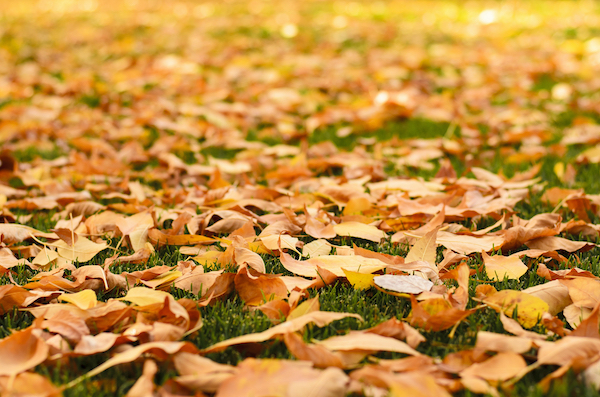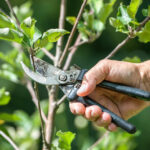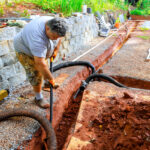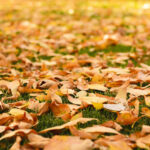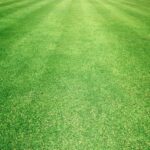The Top 3 Benefits of Mulching Leaves on Your Grass
Autumn is a magical time of year in Paulding County, Georgia, with vibrant colors painting the landscape as trees shed their leaves. However, when those leaves start piling up on your lawn, they can become more of a nuisance than a picturesque scene. While many homeowners resort to raking, bagging, or blowing away fallen leaves, there’s a smarter, eco-friendly solution: mulching. Mulching your leaves directly into your lawn is not only time-saving but also beneficial for your grass, soil, and the environment.
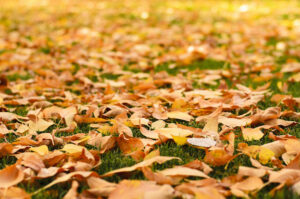
In this article, we’ll explore three key benefits of mulching your leaves and why it’s a practice every homeowner should adopt.
1. Improves Soil Health and Fertility
One of the most significant benefits of mulching leaves is its ability to enhance soil health. As the leaves decompose, they act as a natural fertilizer, enriching the soil with vital nutrients.
How Mulching Leaves Improves Soil:
- Organic Matter Contribution: Mulched leaves break down into organic matter, improving soil structure and aeration. This creates a healthier environment for grass roots to thrive.
- Nutrient Boost: Leaves are rich in carbon and other essential nutrients like nitrogen, phosphorus, and potassium. As they decompose, these nutrients are released back into the soil, feeding your lawn naturally.
- Enhanced Microbial Activity: Mulching encourages beneficial microorganisms and earthworms to flourish. These organisms play a crucial role in breaking down organic material and improving soil fertility.
Key Statistics:
According to a study conducted by Michigan State University, mulching leaves into the lawn can reduce the need for synthetic fertilizers by up to 25%. This not only saves money but also minimizes the risk of chemical runoff into nearby waterways.
Practical Tip:
To ensure optimal decomposition, mow your lawn regularly during the fall season, chopping the leaves into small pieces. Using a mulching mower can make this process even easier, as it’s designed to finely chop and redistribute organic material evenly.
2. Saves Time and Effort Compared to Traditional Cleanup
Raking, bagging, and hauling leaves can be an exhausting, time-consuming chore. For many homeowners, weekends in the fall are spent battling piles of leaves instead of enjoying the crisp autumn weather. Mulching, on the other hand, simplifies the process.
Why Mulching Is More Efficient:
- No Need to Rake or Bag: Instead of gathering leaves, simply run your lawn mower over them. This eliminates the need for multiple tools and saves hours of manual labor.
- Reduced Yard Waste: Bagged leaves contribute significantly to landfill waste. Mulching transforms this potential waste into a resource, keeping your yard clean and eco-friendly.
- One-Step Lawn Care: Mulching combines mowing and fertilizing into a single process, making it an all-in-one lawn maintenance solution.
Environmental Impact of Reduced Waste:
The Environmental Protection Agency (EPA) reports that yard trimmings, including leaves, account for 13.5% of all landfill waste. By mulching, you can contribute to a significant reduction in this number, helping to combat the growing issue of landfill overcrowding.
Practical Tip:
Mow your lawn when the leaves are dry for the best results. Wet leaves can clump together, making them harder to mulch and potentially clogging your mower.
3. Promotes a Healthier Lawn by Preventing Thatch Buildup
Contrary to a common misconception, mulching leaves does not cause thatch—a dense layer of organic material that can smother your lawn. Instead, mulched leaves decompose quickly and prevent thatch from forming.
How Mulched Leaves Prevent Thatch:
- Improved Airflow: Mulched leaves are finely chopped, allowing air, water, and nutrients to penetrate the soil more easily.
- Balanced Decomposition: Unlike grass clippings that may pile up and cause thatch, mulched leaves break down uniformly due to their high carbon content, which balances out nitrogen-rich materials.
- Healthy Lawn Growth: By reducing compaction and enhancing soil aeration, mulched leaves promote robust grass growth, especially in cooler months.
Thatch Myths Debunked:
Thatch primarily develops from excessive use of synthetic fertilizers or poor mowing practices, not from natural materials like mulched leaves. Research shows that integrating organic matter, such as mulched leaves, can actually decrease the likelihood of thatch buildup over time.
Practical Tip:
Spread out the mulched leaves evenly across your lawn to avoid creating thick layers. A thin, even coating is all you need to reap the benefits without overwhelming the grass.
Bonus Benefits: Mulching Supports Sustainability
Aside from the direct benefits to your lawn, mulching leaves is a sustainable practice with far-reaching environmental advantages. Here’s how:
1. Reduces Carbon Emissions:
Traditional methods of leaf disposal, such as hauling them to landfills or burning, contribute to greenhouse gas emissions. Mulching leaves eliminates the need for these processes, significantly reducing your carbon footprint.
2. Conserves Water:
Mulched leaves act as a natural moisture-retaining layer, reducing evaporation and helping your lawn stay hydrated for longer periods. This is especially beneficial during dry spells.
3. Protects Local Ecosystems:
By keeping leaves out of storm drains and landfills, mulching prevents nutrient overload in nearby rivers and lakes. Excess nutrients from decaying leaves can lead to algal blooms, which harm aquatic ecosystems.
Step-by-Step Guide to Mulching Leaves
If you’re new to mulching, here’s a simple guide to get started:
- Choose the Right Mower: Invest in a mulching mower or equip your existing mower with a mulching blade. These tools are specifically designed to chop leaves into fine pieces.
- Mow at the Right Time: Wait until you have a moderate layer of leaves covering the grass—enough to see them but not so many that they form a dense mat. Aim for dry conditions to make the process smoother.
- Adjust Your Mowing Height: Set your mower blade to a medium height. This ensures the leaves are finely chopped without overworking your mower.
- Inspect and Spread: After mowing, check to ensure the leaves are evenly distributed. If you notice clumps, go over the area again or use a rake to spread them out.
- Repeat as Needed: Continue mulching throughout the fall season to keep up with the steady accumulation of leaves.
Conclusion: Mulching Is a Win-Win for Your Lawn and the Environment
Mulching leaves on your lawn isn’t just a practical solution to autumn’s leaf problem—it’s an investment in your yard’s long-term health and the planet’s well-being. By improving soil fertility, saving time, and promoting healthier grass growth, mulching proves to be a superior alternative to traditional leaf disposal methods.
Moreover, the environmental benefits of reducing waste, conserving water, and lowering emissions make it a sustainable choice for every eco-conscious homeowner.
This fall, instead of reaching for the rake, grab your mower and give mulching a try. Your lawn—and the environment—will thank you for it.
Lawn Frogs Landscaping FAQs About Mulching Leaves
1. Will mulching leaves smother my grass?
No. As long as you chop the leaves finely and distribute them evenly, they will decompose quickly and integrate into the soil without harming your grass.
2. Can all types of leaves be mulched?
Yes, but thicker leaves like oak may take longer to break down. Mulching these leaves into smaller pieces is essential for faster decomposition.
3. Do I still need to fertilize if I mulch my leaves?
Mulching can reduce the need for additional fertilizers, but you may still want to supplement with fertilizer in the spring for optimal lawn health.
4. Is mulching suitable for large yards with heavy leaf fall?
Absolutely! For large yards, consider mulching regularly throughout the fall to manage the volume effectively.
5. Can I mulch leaves on wet grass?
It’s best to avoid mulching when the grass or leaves are wet, as this can lead to clumping and uneven distribution.
By adopting this eco-friendly practice, you’ll not only save time and effort but also create a lush, green lawn that thrives year-round. Embrace mulching this fall, and enjoy the rewards of a healthier, more sustainable yard. If you need to schedule your Leaf Mulching then Contact Us Today!

